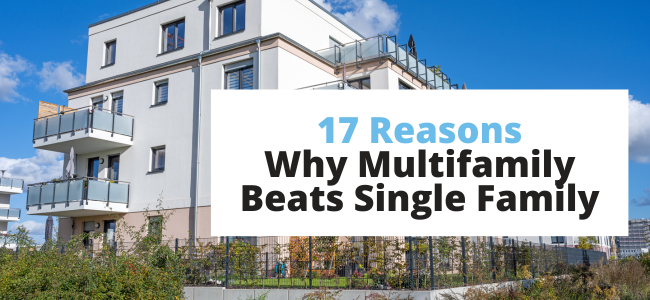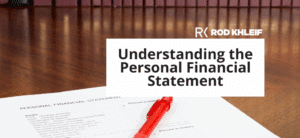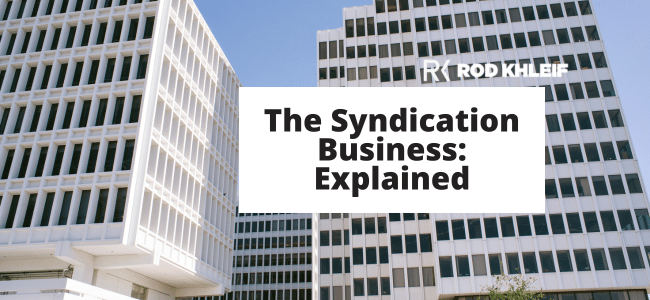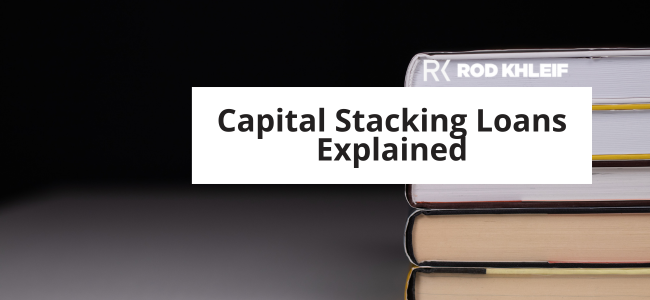Investing in real estate is one of the best ways to build wealth, but not all real estate investments are created equal. While many new investors start with single family homes, experienced investors know that multifamily properties offer greater scalability, stability, and profitability. That’s why multifamily beats single family still in 2025.
Why Listen to Me?
I’ve owned and managed thousands of doors through four economic cycles, so I’ve seen what performs when the market zigzags. In 2025, the evidence is clearer than ever: multifamily beats single-family hands down.
Let’s dive into the 17 biggest reasons.
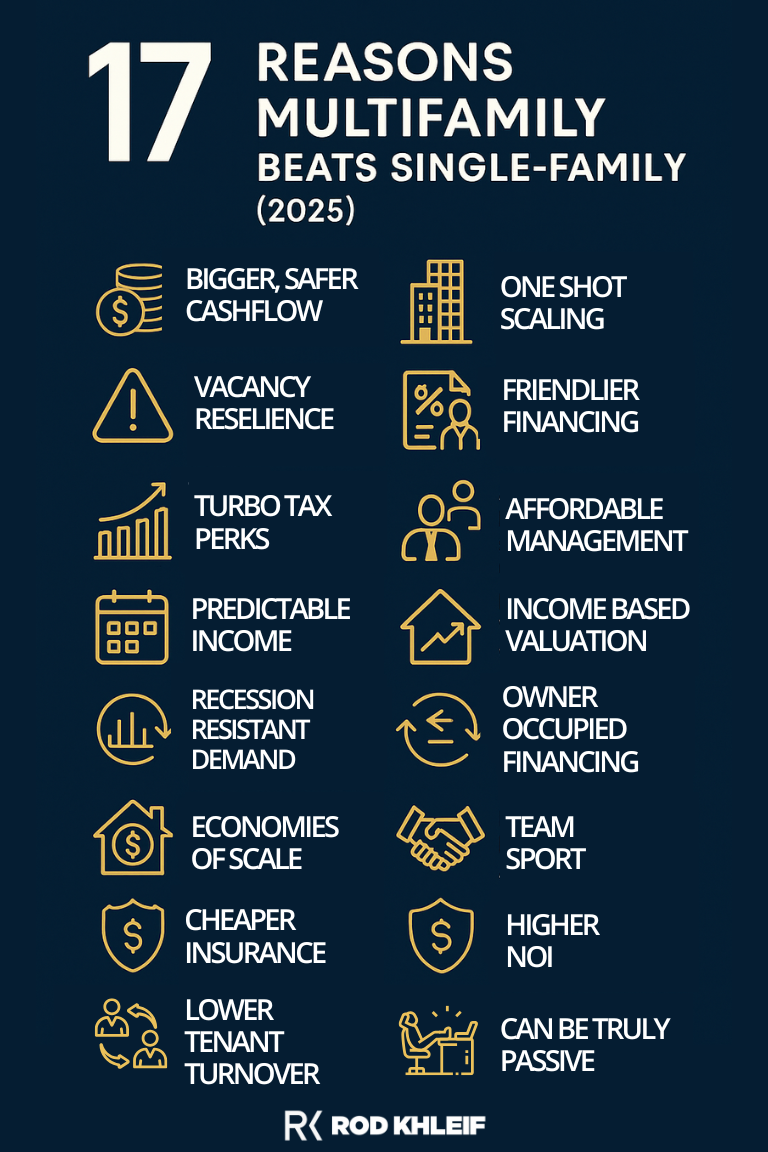
1. Bigger, Safer Cash Flow
A single-family rental leans on one paycheck; miss that check and your income drops to zero. In a 20-unit property, one vacancy only trims 5 % of your revenue, leaving 95 % intact.
That cushion matters today: the national rental-vacancy rate just ticked up to 7.1 %. Having multiple options smooths out the ups and downs of income. This is great for lenders, partners, and your stress levels.
2. Rapid, One-Shot Scaling
Want 10 new doors? You could chase 10 separate houses, ten sets of inspections, ten closings—and ten chances for a deal to blow up. Or you can close one apartment building and be done by Friday. Larger properties lead to fewer transactions. You only need one insurance policy and one set of vendor relationships. This gives you more time to find the next deal instead of managing many small tasks.
3. Vacancy Doesn’t Equal Zero
With single-family, a vacancy wipes out 100 % of rent until you re-lease. In multifamily, even a couple of empty units leave plenty of cash coming in to cover debt service and expenses. That resilience shows up in values: buyers will pay more for predictable cash flow, even in softer markets.
4. Friendlier Financing
Why are banks fighting for your apartment loans? Because they’re safer. The Mortgage Bankers Association expects multifamily lending to jump 16 % to $361 billion in 2025 as capital rotates away from shakier asset classes. Lower perceived risk = sharper rates, longer amortizations, and bigger loan proceeds.
5. Turbo-Charged Tax Advantages
Apartments are depreciation machines. A cost-segregation study can accelerate write-offs on components like roofs, HVAC, and even parking lots, wiping out years of taxable income. Stack that with bonus depreciation (still 60 % in 2025), mortgage-interest deductions, and a 1031 exchange, and Uncle Sam becomes your silent partner.
6. Economies of Scale
Roof goes bad on a fourplex? One roof solves four problems. Mow one lawn, insure one structure, pull one set of permits—every per-unit cost drops as your door count rises. That widening spread between rent and expenses is pure NOI, the metric that drives property value.
7. Higher Net Operating Income (NOI)
Because expenses scale down and rents stack up, apartments routinely post NOI margins 10–15 points higher than scattered single-family portfolios. Every extra dollar of NOI is worth $15–$20 in equity at today’s cap rates—forcing appreciation even when market values stall.
8. Affordable Professional Management
A third-party manager that costs 10 % on a single-family house might drop to 3–4 % of collected rents on a 100-unit. Better yet, onsite teams can handle leasing, maintenance, and resident retention, freeing you to focus on acquisitions and investor relations.
9. Value Based on Income, Not Comps
Single-family values ride the whim of your neighbor’s sale price. Multifamily uses the income approach: boost rents or trim expenses and the valuation formula does the rest. You control appreciation by operating better, not by praying for a hot market.
10. Predictable, Durable Income Streams
Freddie Mac pegs 2025 rent growth at a steady 2.2 % with vacancy settling near 6.2 %, even after the recent construction boom. Translation: modest but reliable growth—exactly what pension funds and life-companies target, and exactly why they’ll pay premium prices when you sell.
11. Recession-Resilient Demand
High mortgage rates mean more people rent longer. Roughly 31.4 % of Americans—over 102 million people—now live in rentals. During downturns, that renter pool swells as would-be buyers sit out the market, propping up occupancy in well-located apartments while single-family flippers sweat.
12. Smoother Exit Strategies
You’re not limited to retail buyers who need a mortgage and a white-picket-fence dream. Institutions, REITs, family offices, and 1031 exchangers all hunt stabilized multifamily in any cycle. A larger buyer pool means more competitive offers and shorter time on market when you’re ready to cash out.
13. Lower Tenant Turnover
Single-family renters often bolt once they can buy. Workforce-housing residents in B and C-class apartments typically renew to avoid moving costs and rising house prices, slashing make-ready expenses, leasing commissions, and vacancy downtime.
14. Built-In Value-Add Plays
Upgrade units with vinyl-plank floors, add smart locks, bill back utilities, stripe the parking lot. Each improvement can raise rents $50–$150 per door. Multiply that by many units, and you can increase NOI by six figures in one year. Then, refinance and take out cash without paying taxes.
15. Syndication & Partnerships Are Easier
Big deals need bigger checks, which attracts passive investors dying for yield. Structure a syndication: limited partners bring capital, you bring the hustle. Earn an acquisition fee, asset-management fee, and a promote on the backend—all while everyone shares upside.
16. Cheaper Insurance per Door
Commercial carriers write master policies that bundle liability, property, and umbrella coverage. Spreading the premium across 40 units often halves (or better) the per-door cost you’d pay insuring 40 separate homes.
17. Truly Passive Options Abound
Don’t want to swing hammers or field 2 a.m. leak calls? Buy into a private apartment syndication or a multifamily-focused REIT. You collect distributions while professionals handle operations—perfect for busy professionals chasing mailbox money.
Bottom Line
Whether you’re eyeing your first duplex or your hundredth unit, 2025’s fundamentals still favor multifamily: steadier demand, friendlier financing, scalable operations, and value you can force—not hope for. Single-family is a stepping-stone; apartments are the bridge to lasting wealth.
Take Action
Ready to make the leap? Join my next Multifamily Bootcamp and learn, step-by-step, how to find, fund, and operate deals that create lifetime cash flow. Spaces disappear fast—secure yours now.
🎧 Prefer audio learning? Subscribe to “The Lifetime Cash Flow Podcast” for weekly tactical deep dives and real-world success stories.

